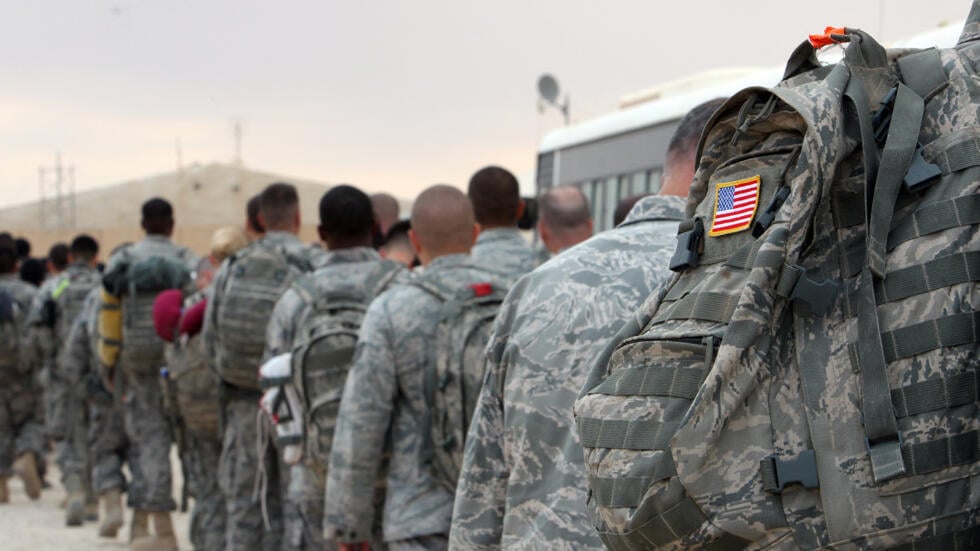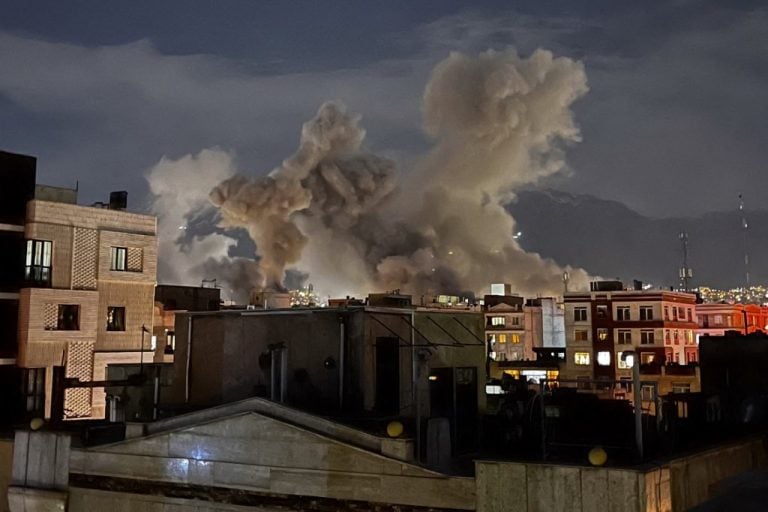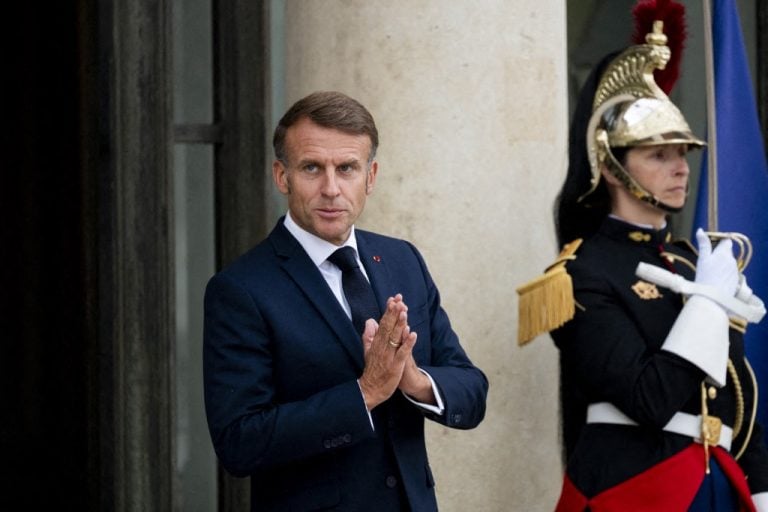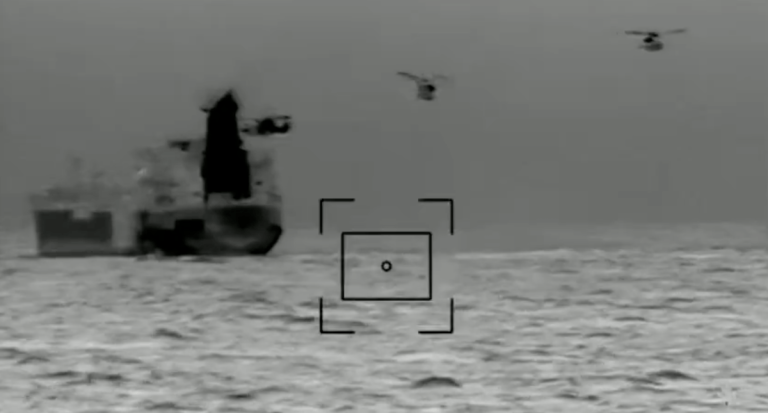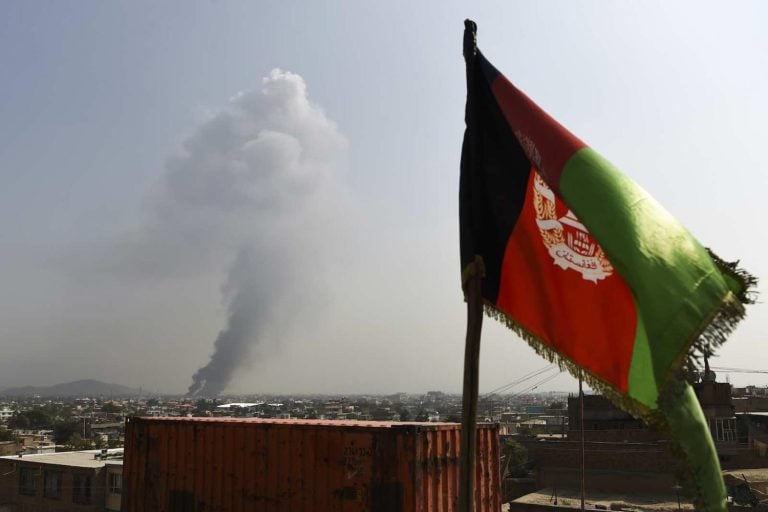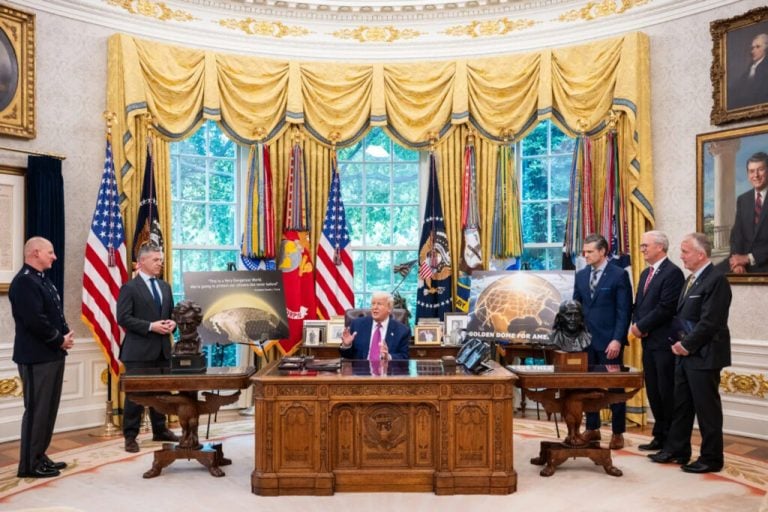President Trump announced a strategic reduction of U.S. personnel from the Middle East on Wednesday, citing increasing security concerns as nuclear negotiations with Iran deteriorate. As tensions escalate, fears of potential regional conflict have intensified, prompting the move amidst speculation that Israel may consider striking Iran’s nuclear facilities.
In a statement to reporters, Trump emphasized his administration’s commitment to preventing Iran from obtaining a nuclear weapon, stating, “They can’t have a nuclear weapon, very simple. We’re not going to allow that.” The remarks came after reports surfaced regarding the evacuation of staff from the U.S. embassy in Iraq, as well as personnel relocations from Kuwait and Bahrain.
Iran reacted strongly to the shifting U.S. military posture, with threats targeting American military bases in the region should a conflict arise. Iranian Defense Minister Aziz Nasirzadeh asserted, “All its bases are within our reach, we have access to them, and without hesitation we will target all of them in the host countries.” He expressed hope that diplomacy would prevail and warned that the U.S. would “suffer more losses” in the event of escalating hostilities.
With diplomatic efforts ongoing since April, five rounds of negotiations have been held in an attempt to forge a new nuclear deal following the 2015 accord, which the Trump administration unilaterally abandoned in 2018. While Trump had previously shown optimism about achieving a resolution, he conveyed growing skepticism, revealing in a recent interview that he is “less confident” about finalizing an agreement.
As the Biden administration intensifies its “maximum pressure” strategy against Tehran, Trump indicated that he has urged Israeli Prime Minister Benjamin Netanyahu to delay any offensive action against Iran to allow for the diplomatic process to continue. However, he also conveyed impatience, hinting at the potential for military action if negotiations fail.
Diplomatic tensions between the U.S. and Iran have escalated, particularly regarding Iran’s uranium enrichment, which currently exceeds the limits established in the 2015 nuclear agreement. Tehran has enriched uranium to 60 percent, close to the threshold necessary for weaponization, while the U.S. maintains that this enrichment level is unacceptable. Iranian leadership has characterized their nuclear pursuits as non-negotiable, with Supreme Leader Ayatollah Ali Khamenei asserting that the enrichment is a core aspect of their nuclear strategy.
In response to the heightened tensions, the UK Maritime Trade Operations, overseen by the British Navy, issued a cautionary notice advising vessels to exercise increased vigilance while navigating the Gulf.
The stakes remain high as Iran prepares to address Washington’s latest proposal, which has been met with criticism for not sufficiently addressing Tehran’s demand for sanctions relief—critical for a nation grappling with the economic impact of prolonged restrictions.
